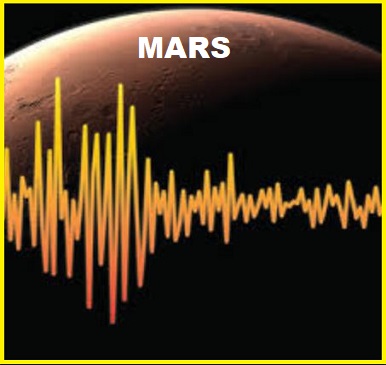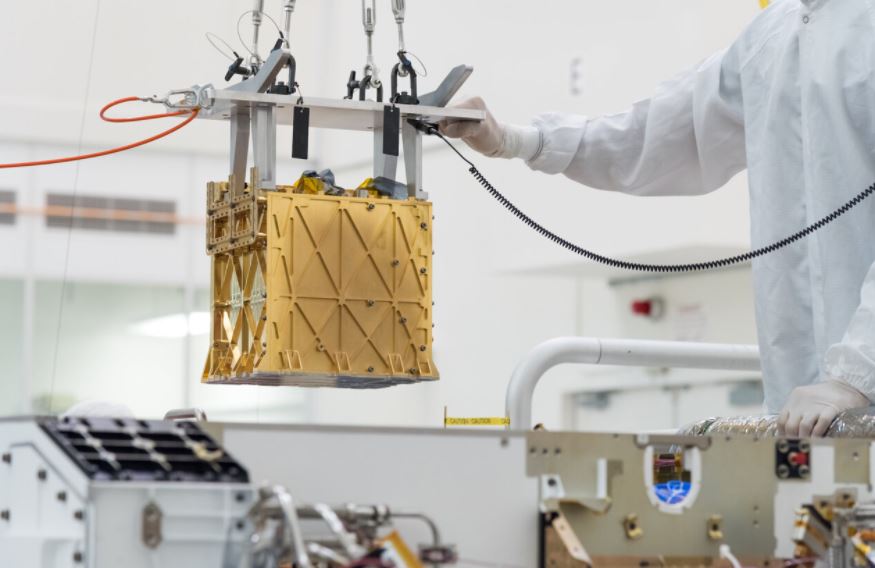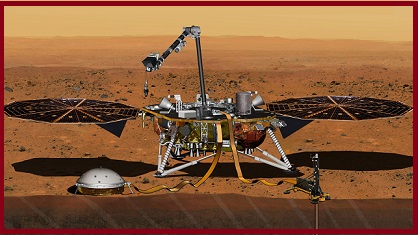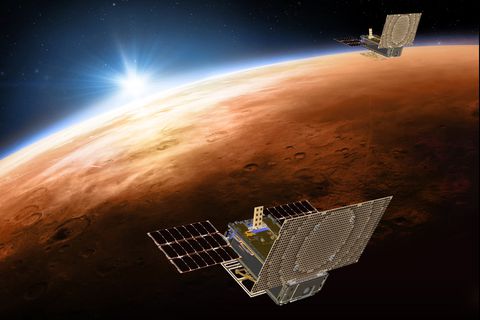Updated By: LatestGKGS Desk
NASA Insight Mars Lander Detects First-Ever Likely Marsquake

NASA Insight Mars Lander Detects First-Ever Likely Marsquake: Details, Highlights
NASA’s Mars Lander InSight has recorded its first ‘Marsquake.’ It has recorded a quake of 2 or 2.5 magnitude which is hard to predict on Earth’s surface. The faint seismic signal, detected by the lander's Seismic Experiment for Interior Structure (SEIS) instrument, was recorded on April 6, the lander's 128th Martian day.
This is the first recorded trembling that appears to have come from inside the planet, as opposed to being caused by forces above the surface, such as wind. Scientists still are examining the data to determine the exact cause of the signal.
NASA Scientists believe the trembling may not be due to wind or movement of the lander’s robotic arm but from below the Martian surface. If scientists confirm it would become the first seismic activity ever detected on Mars.
NASA’s InSight Lander Mission
NASA’s Insight Lander equipped with five seismometers that measured thousands of quakes while operating on the Moon between 1969 and 1977.
NASA’s InSight stands for Interior Exploration using Seismic Investigations, Geodesy and Heat Transport is a Mars lander aimed to undertake the first-ever thorough checkup since it formed 4.5 billion years ago. Insight Mission will also measure tectonic activity and meteorite impacts on Mars.
NASA’s Insight is the first outer space robotic explorer to study in-depth the “inner space” of Mars: its crust, mantle, and core.
Mars
Radius: 3,389.5 km
Distance from Sun: 227.9 million km
Moons: Phobos, Deimos


